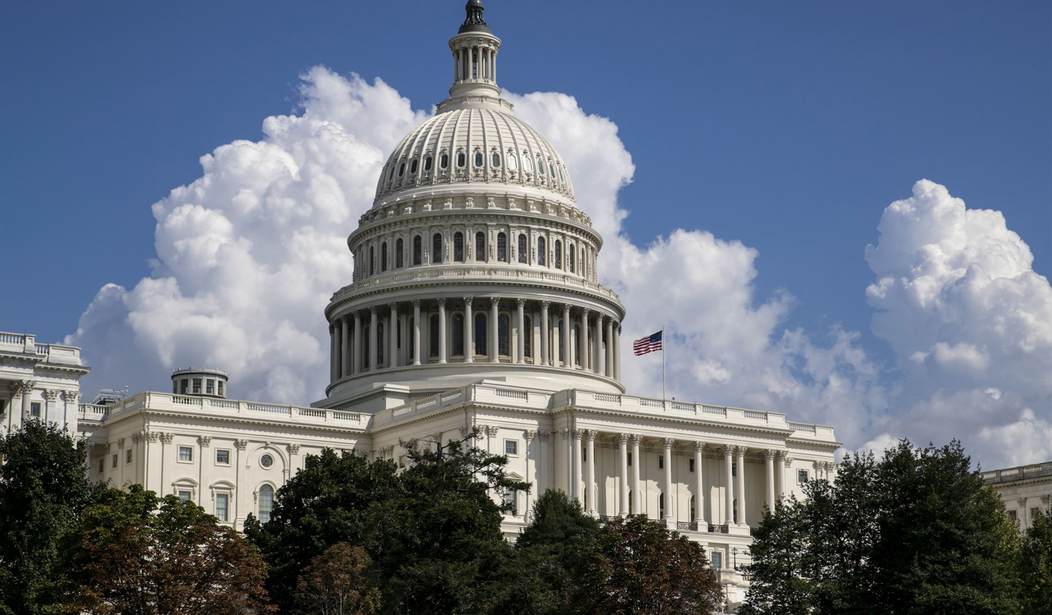Editor's note: This column was co-authored by Kaitlynn Samalis-Aldrich.
America’s Founders lived well before the advent of social media, but that doesn’t mean they were unfamiliar with some of the more negative tendencies of our digital public square — particularly the problem of factions.
Consider The Federalist Papers. They were instrumental in shaping public understanding of the Constitution before it was ratified in 1788, and they are still regularly cited today by courts and scholars seeking to understand the meaning of the Constitution’s text.
The tenth essay in the series of 85, commonly referred to as Federalist 10, may be the best known. Despite its age, Federalist 10 remains relevant today. In fact, its lessons are especially important in this time of heightened political partisanship where social media gives the loudest opinions a power and prominence that is disproportionate, at times, to the number of people who hold them.
In Federalist 10, James Madison discussed the problems that factions pose to a republic. Factions, he explained, are groups “united and actuated by some common impulse of passion, or of interest, adverse to the rights of other citizens, or to the permanent and aggregate interests of the community.” Factions are a problem when they obtain political power because they put their interests above the common good.
Madison acknowledged that “the public good is often decided, not according to the rules of justice and the rights of the minor party, but by the superior force of an interested and overbearing majority.” In plainer terms, a faction that comprises a majority of the people may trample the rights of minorities in pursuit of its specific priorities.
Recommended
What is Madison’s remedy to this problem? A properly structured republican form of government. Specifically, one in which representatives calm the passions of factions and behave like long-term stewards of the health of the country. Madison explained that representatives should “refine” public opinion because their “wisdom may best discern the true interest of their country,” and their “patriotism and love of justice, will be least likely to sacrifice it to temporary or partial considerations.”
Most people probably don’t think of Congress today as a bastion of wisdom, reason, and justice, or that most of its Members are genuine statesmen, putting the interest of the country over their own.
The problem today is that many representatives have allowed themselves to be captured by factions, and they seem more interested in advancing those factions’ agendas—most likely because they believe it is in their personal interests to do so—than working towards the good of the entire nation.
But unlike the factions Madison describes in Federalist 10, today’s factions are not tyrannical majorities but tyrannical minorities who shout with voices louder than their numbers would suggest. Still, they wield political power and frequently use that power to advance what is often a narrow, self-centered crusade.
Worse, they are regularly assisted by politicians eager to create division by engaging in identity politics, threatening the independence of the judiciary, and proposing unconstitutional policies in order to pander to particular interest groups.
Is it naïve to ask what happened to Madison’s wise and just representatives? Perhaps a little. There has always been bitter—let’s be charitable and say passionate—partisanship throughout our history. But ideals provide us a target to strive for.
What’s more, representatives have historically (with notable exceptions) agreed that, like the Marquess of Queensberry rules, the Constitution sets certain rules of engagement.
But the modern moment is unique in that our constitutional form of government is itself under attack. The Constitution’s constraints are often seen as a barrier to factions’ policy aims rather than the bulwark against tyranny that they are.
Madison called on representatives to “refine and enlarge” the views of their constituents so that “the public voice . . . will be more consonant with the public good.” We wish more of today’s politicians would do so.
Ultimately, we have no quick fix to restore Congress to Madison’s ideal, only the following admonition: Our republican form of government requires self-restraint and representatives who will, above all else, remember that they are not mere advocates for the loudest or wealthiest of their constituents, but rather, stewards of a great but delicate constitutional experiment.
GianCarlo Canaparo is a legal fellow, andKaitlynn Samalis-Aldrichis a researcher, in The Heritage Foundation’s Edwin Meese III Center for Legal and Judicial Studies (heritage.org).

























Join the conversation as a VIP Member